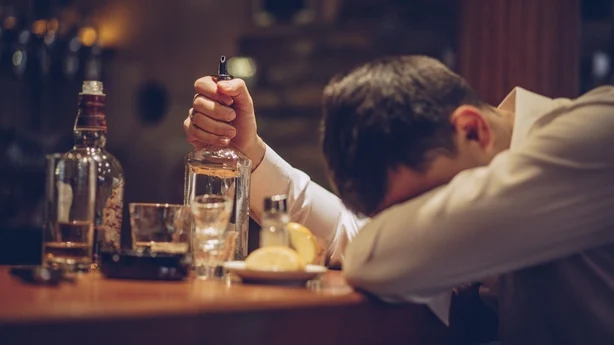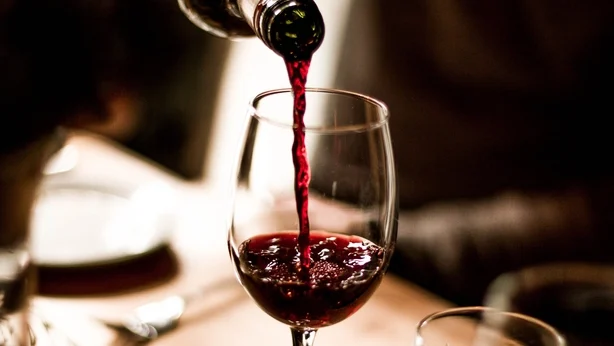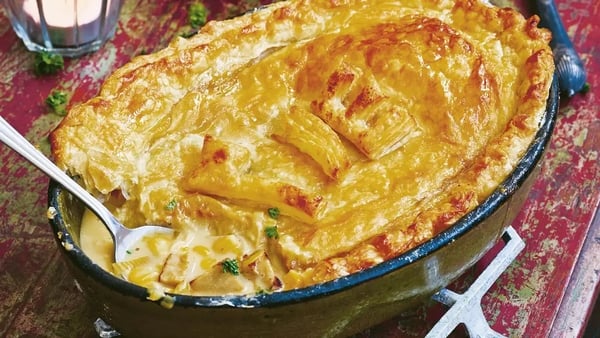Niamh Delmar is a Counselling Psychologist and mental health freelance writer. Here, she shares her advice for cutting down or quitting alcohol.
The ways in which people drink have changed over the last couple of years. Social media references to "wine o'clock", zoom parties, and images of stocking up on wine during the pandemic reflected a surge in drinking at home.
Isolation, being locked down during COVID, stress, boredom and a "to hell with it" attitude instigated a free-flowing self-pouring of booze, with no closing time. Pre-existing problems were amplified and new patterns emerged to escape, numb, cope, connect or unwind.
Many who increased their consumption are women, stressed out carrying the brunt of homeschooling, working from home and family life. A disproportionate amount fell on their shoulders trying to balance it all.
Interventions, support groups and treatments were disrupted during the restrictions.
Many of those working in addiction services predict long-term consequences as a result of unhealthy patterns established during the pandemic. Addiction is any behaviour a person engages in, then craves, and gets temporary pleasure from.

Myths & Misunderstandings
Despite negative consequences, there is a struggle to give it up. There are many myths, misunderstandings and minimising about alcohol. According to the DSM-5, the Diagnostic and Statistical Manual of Mental Disorders, alcohol use disorder (AUD) is classified into mild, moderate and severe classifications, with a range of indicators present over a 12-month period.
According to the WHO, there is no safe level for drinking alcohol. The HSE refers to weekly low-risk alcohol intake as being less than 11 standard drinks for women and 17 for men. It recommends avoiding binge drinking (more than 6 standard drinks in one period) and having 2-3 alcohol-free days per week. A standard drink of wine is a small glass, not a goblet (125ml, ABV 12%). Weight, gender, age, food eaten and medications all impact the effects of alcohol.
Alcohol is associated with a plethora of physical and mental ill-health hazards. While it might feel relaxing, excessive consumption over time causes adaptations in the brain that actually intensify the stress response. Alcohol is a depressant and disrupts normal sleep cycles.
It is linked to over 200 disease and injury conditions. Problem drinking is often downplayed, misunderstood, and only seen as an issue if at the extreme end of the scale. Drinkers may ignore serious red flags such as blackouts, damage to relationships or not being able to stop.
Binge drinking is the most common form. Research has found that many drinkers think they are drinking in the safe range, when, in reality, they are exceeding it significantly. The justifications and excuses are endless and the drinking dialogue is convincing. For many, abstinence for life may seem daunting but is necessary.

Sober Curious
There are more and more people giving up alcohol because they want to, not because they ‘have’ to. Being "sober curious" is becoming more widespread globally. I find more conversations have arisen with friends about this.
People in this category report no "rock bottoms" and not being at the extreme end of the scale, but question their habit. It is an alternative approach that involves reflecting on drinking and moving towards moderation or sobriety.
Emer Halpenny, writer and dramatist, explained to me how she wanted to cut back for a long time, but it was only when she was prepared to face not drinking at all, that a shift came. She said she drank as much during lockdown but the pandemic removed the guilt. She looked to a future where she would wake up with a clear head, achieve more, and be more present for her family and for herself.
She described to me how she prefers that her habits are not bad ones, and now wakes up every morning with a sense of clarity and inspiration for the day, rather than chastising herself for staying stuck in a rut.

Grey Area Drinking
Grey area drinking is another emerging term for when the criteria for dependence is not met, but there is a preoccupation with alcohol and a struggle to give it up. On a spectrum from now and again moderate drinking to full-blown dependency, it lies in the middle. People in this category are at risk of physical and mental health problems and can slide easily.
The person may quit for periods, like dry January, but then resets. On the surface, it looks like the person is functioning. Our society has normalised problem drinking. We need innovative and creative ways to intervene. There are new perspectives, new understandings and individualised interventions emerging.

Think of the benefits
Scientific evidence shows it doesn’t actually help with healthy sleep patterns, stress or mood, make you more interesting or anything else you have come to believe. Alcohol is harmful.
There will always be the inner alcohol dialogue defending it and justifying the urge to drink, but the benefits of quitting are numerous.
Better skin, a healthy weight, liver healing, reduced risk of chronic diseases, a stronger immune system and enhanced psychological well-being are just a few.
Keep a drinks diary
Fill in the amount of units and the time spent drinking. What could you be doing instead for those wine or alcohol hours? This could include more time with family, taking a course, engaging in interests and activities or more exercise. Be aware of what makes you want a drink.
Support
There are sober podcasts, online communities, apps, support groups and telemedicine services to help.
Calculate the cost
How much are you spending on alcohol daily, weekly or monthly?
Explore healthy replacements
Herbal teas, mocktails, non-alcoholic drinks.

Be honest with yourself and others
Where are you on the spectrum from moderate and occasional drinking to heavy drinking? Is it getting out of control? Have an open dialogue with your GP or a mental health professional specialising in this area and receive an assessment.
Professionals
If the individual is self-medicating, treating the underlying conditions will help recovery. Professionals need to take it seriously and know how to intervene or refer when a person admits to drinking too much. More exploration of alcohol intake is essential at routine visits, counselling sessions and other points of contact.
Research shows alcohol deterrent medications combined with addiction counselling yield positive results. Yet such medications are underused. World-renowned addiction expert, Dr. Gabor Maté asserts that all addictions originate in trauma and emotional loss. Interventions need to encompass that.

Moderation
If not at the extreme end of the spectrum, when more specialised treatment is necessary, cutting back has significant benefits. It also has been a stepping stone to abstinence for some. Eliminating four glasses of wine per week is equivalent to over two bottles a month.
Sipping, rather than gulping, practising ‘one or none’, counting and measuring alcohol units, eating before having a drink, delaying the first one, not having the nightcap, going to bed earlier, alcohol-free days and alternating to non-alcoholic beverages are just some of the strategies that work for people.
When drinking with others, it helps to be assertive and not be influenced or carried away by their drinking habits. A simple "I am okay for now" or "I‘ve had enough" can suffice and if poured or bought for you, just leave it there. Have your abstinence or cutting back ‘scripts’ ready.
Education and Social Policy
Many people seem unclear about what problem drinking is and downplay it. Risk awareness, clear categories, shifting attitudes and access to a wide range of supports are all part of an effective national response.
Resources:
- HSE have a list of alcohol services in your area and support services for families and friends.
- Alcohol Explained written by William Porter.
- In the Realm of Hungry Ghosts written by Dr. Gabor Maté.



